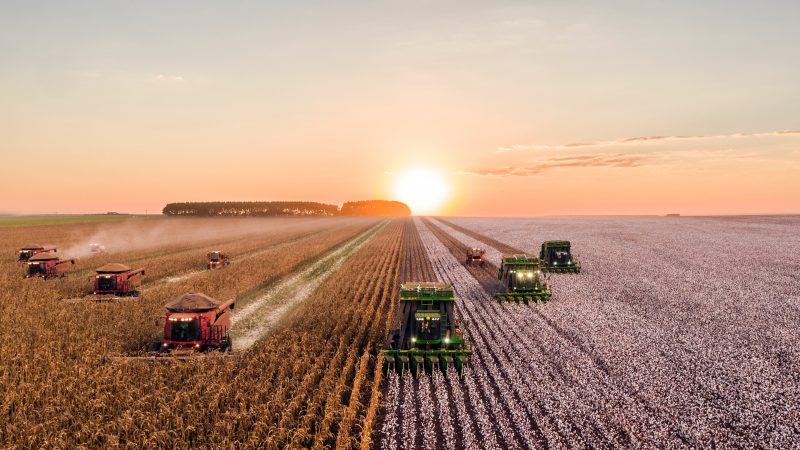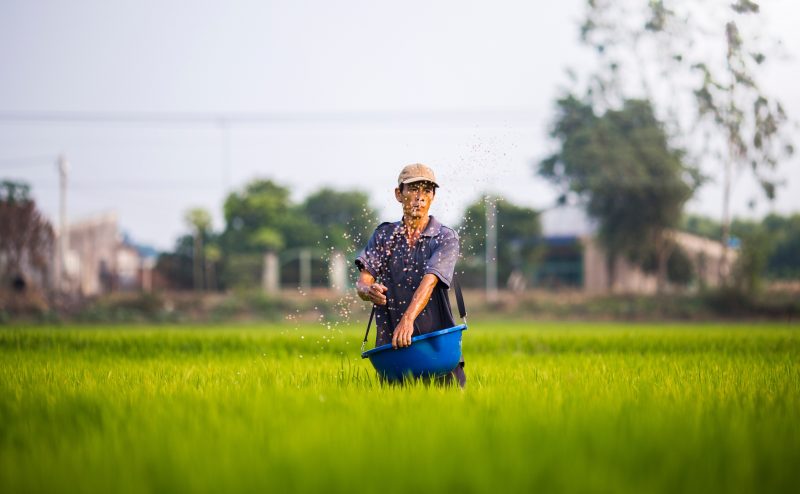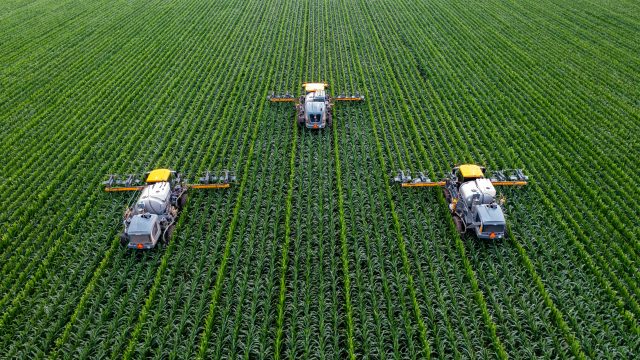Can big agribusiness adapt to a green economy?
Industrial agriculture is one of the most environmentally destructive sectors operating today. Can it be reformed?

Guest author Billie Armstrong explores one of the world's most environmentally damaging sectors - industrial-scale agriculture - and asks if the world of agribusiness can really be trusted to clean up its act.
In the last two decades the agriculture sector - particularly in the US - has become increasingly recognised as a leading driver of environmental destruction, including climate change, biodiversity loss, deforestation and waste. But as well as being a culprit, it is also becoming clear that agriculture will be a victim of many of the environmental changes it has contributed to.
Projected effects of climate change are likely to increase droughts, heatwaves, flooding, and unseasonal changes in temperature, all of which are likely to damage crop yields, as will top soil erosion, pesticide run-off, and collapsing insect populations. These impacts will pose serious challenges to producing enough food for a world population set to reach 10 billion by 2050.1
Agribusinesses have taken steps in recent years to transform their image in recent years in order to shake their reputations as corporate catalysts of environmental harm. But is this latest tide of PR a response to legitimate fears over the potential climate challenges that agribusinesses face, or an attempt to appease a growing consumer conscience?
“ Much of the drive towards high-tech agriculture is being led by companies with extremely dubious ethical and environmental track records.”
An increase in consumer demand for transparency in farming practices - from animal living conditions, to the use of pesticides and environmentally harmful levels of water use and soil runoffs - appears to have sparked some changes in the way agriculture is doing business. There has been increased interest and investment in less intensive agricultural techniques such as agroforestry and permaculture, a method of farming which aims for self-sufficient sustainability while protecting biodiversity. One example in Germany dedicates a portion of its land to grow wild flowers and fruit trees in order to create a suitable refuge area for wild animals, as well as an area for bees to pollinate crops.
These methods, while a positive contribution to deteriorating ecosystems, remain fairly small-scale, and also vulnerable to climate change. Some argue that agricultural technology, such as bio-engineered crops, AI farming methods and digital farming, has an important role to play in dealing with the food challenges posed by climate-induced disasters and temperature extremes.
Smart farming aims to streamline agriculture in order to obtain the most crop yield from the least land and waste possible. Technologies have the potential to minimise crop failure by measuring the effects of weather variables with sensor technology, leading to increased yield and reduced waste. The important issue then becomes the widespread development and distribution of these technologies throughout supply chains, meaning that investment today is crucial for future success.

One notable takeaway from this shift in Agribusiness focus is their dual incentive to pay attention to sustainability issues: if environmentally sustainable systems can increase dwindling profit margins and appease growing consumer consciousness, then in the long term the current industry leaders in Agribusiness would be foolish to not invest in sustainable solutions. A recent wave of capital from investors (such as Y Combinator, Syngenta Ventures) in farming tech startups suggests change is afoot in the way that crops are produced.2
The question that arises, however, is whether this is a positive step, given that much of the drive towards high-tech agriculture is being led by companies with extremely dubious ethical and environmental track records. After all, these companies are driven by profit maximization first and foremost, and it's likely that real progress on sustainability will always play second fiddle to short-term shareholder value.
This is not enough. Sustainability can no longer be an afterthought; the responsibility to invest in the future of food security lies with those at the forefront of agribusiness, with the resources and capital to do so. The larger the financial commitment today, the greater the chance of securing a environmentally viable future for food production.
The farming practices of many multinational agriculture players need to be massively streamlined as well as offset by sustainable investments in order to make agribusiness as sustainable as its PR departments claim it is trying to be. Agribusiness remains rooted in mass land use for intensive farming practices, involving fundamentally unhealthy levels of waste and emissions. It vital that companies are held both publicly and politically accountable for their responsibilities to farmers, and that consumers continue to build the necessary pressure behind sustainability issues in order to keep them at the forefront of the business agenda.
- Billie Armstrong
Photo by Joao Marcelo Marques on Unsplash


